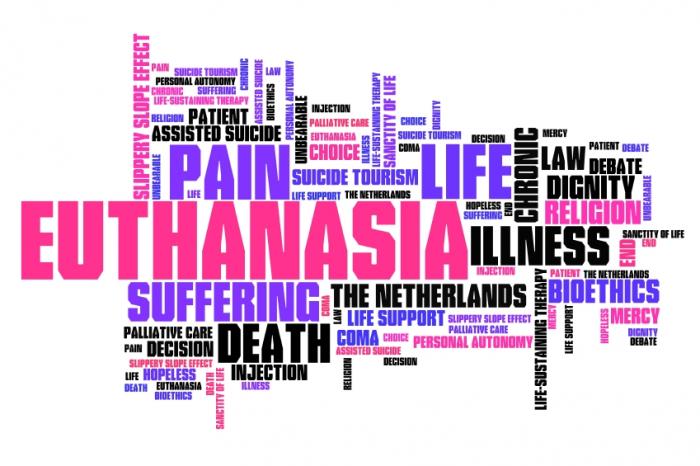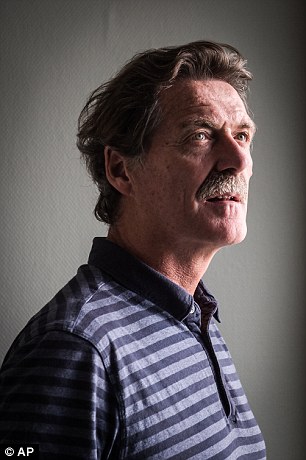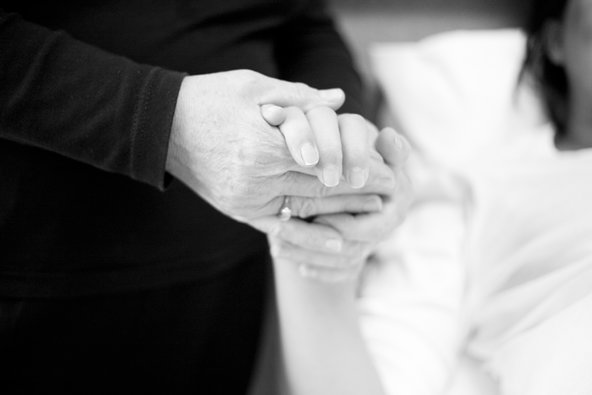Written By: Murni

What is euthanasia? Euthanasia is known as assisted suicide or physician-assisted suicide (dying), doctor-assisted dying (suicide), and more loosely termed mercy killing, means to take a deliberate action with the express intention of ending a life to relieve intractable (persistent, unstoppable) suffering.
“Euthanasia” is frequently mistakenly portrayed as speaking to one specific sort of hone. Be that as it may, it is all the more precisely comprehended as an umbrella term which covers a boundless exhibit of practices that can be portrayed as various types of Euthanasia.
These incorporate;
- Passive voluntary euthanasia – when medical treatment is withdrawn or withheld from a patient, at the patient’s request, in order to end the patient’s life;
- Active voluntary euthanasia – when medical intervention takes place, at the patient’s request, in order to end the patient’s life;
- Passive involuntary euthanasia – when medical treatment is withdrawn or withheld from a patient, not at the request of the patient, in order to end the patient’s life; Active involuntary euthanasia – when medical intervention takes place, not at the patient’s request, in order to end the patient’s life.
Voluntary euthanasia is when a clearly competent person makes a voluntary and enduring request to be helped to die. Non-voluntary euthanasia is when the patient cannot make the decision for himself/herself since he/she is in a comma or other similar state. Whether countries should legalize or use this method to end human’s lives is one of the most controversial issues nowadays.
In my point of view, passive, active, voluntary and non-voluntary euthanasia should not be legalized since the action is similar to killing and which is also a rejection of the significance and value of human life. According to Smith’s (2004), euthanasia “is about using someone’s suffering — and the pity it evokes — as a justification to kill.” Even in old times, the philosophers such as Pythagorean’s, Aristotelian’s, and Epicureans were not in the same line with the physician-assisted suicide (Westerndorf P.J, Seminary,W.L., Mequon & WI., 2005 )
Dynamic killing is a great deal more and a more dubious subject than a lot of willful extermination. People are torn by religious, moral values and empathetic contentions encompassing the issue. Willful extermination has been an extremely dubious and emotive theme for quite a while.

According to NY Times , suffering is not a major reason the choice is made . There is no evidence that the choice is made because pain relief is unaffordable. There is a great need for more palliative and hospice care, but that issue is not connected to aid in dying.
Individuals ought not to utilize killing since it is a dismissal of the significance and esteem of human life and can be viewed as a type of executing and suicide. A few logicians who rejected the possibility of people taking their own particular lives were Hobbes and Locke. Hobbes claims, in Leviathan, that regular law disallows each man “to do, what is ruinous of his life, or take away the method for protecting the same” (as referred to in Philosophy of suicide – Wikipedia, 2010).
As stated in Times Video, Prime Minister Justin Trudeau of Canada unveiled a new bill that would legalize doctor-assisted suicides for people suffering from serious medical ailments on 14 April 2016. Prime Minister of Canada has confirmed that suicide is justified with the help of the doctor if the patient is found to suffer from a serious medical illness. When suicide has been allowed because of the suffering experienced by patients, it also proves that the act is increasingly accepted with the intention to reduce their suffering. Click link for video description:

Video Credit: nytimes Video Source
According to Euthanasia n.d, legalizing euthanasia might also lead to the beginning of the slippery slope arguments. They also stated that allowing euthanasia will cause the practice to become a norm which will bring disaster if it happens since it is easier to administer euthanasia than to provide healthcare. There are some countries that practice euthanasia which are Netherlands and Holland. The Netherlands has allowed euthanasia for years, and under strict guidelines to protect the vulnerable from abuse, meanwhile Holland allows it on Alzheimer’s patients.
Another complaint to willful extermination originates from the likelihood of misrepresentation and manhandle. In any case, if the choice on the “kind discharge” is left to an administration delegated leading group of no less than three people—for example, two medicinal men and one legal counselor, who must be consistent to support it—this appears to be a frail contention. Unquestionably lawful specialists can devise sufficient shields.

There are people who consider euthanasia should be legalized because human beings have the rights to choose what the best for them . Euthanasia is an option for the ones who are suffering. In some cases where the patient had Lou Gehrig’s disease, she knew the consequence of the disease, she will undergo a slow and painful death . She asked the court to grant her wish to die and the court did not approve it but she achieved it anyways with doctor’s help. According to Paquette P. ( 2003 ) , the one’s life is their own rights , hence they have their own rights to create . Also, using euthanasia can be considered another way of killing and a rejection of the significance and value of human life. Humans should value and be grateful for the life they have, instead of thinking of ways to end it.
At death’s door patients now and again endure torment so ghastly that it can barely be fathomed by the individuals who have not really experienced it. Their anguish can be terrible to the point that we do dislike even to peruse about it or consider it; we pull back even from its portrayal. The contention from benevolence says: killing is defended in light of the fact that it puts a conclusion to that (Rachels, p. 457)

The conclusion is even though euthanasia can be a way of out from the pain, but truthfully it is not the only way. The consequence of euthanasia to our society is more weakening than to strengthen it. If it somehow managed to be legitimized, the outcomes may be genocide as it happened when it was sanctioned under the Nazi administration in Germany. The Nazis began utilizing it on critical-conditioned individuals, then they utilized it with the injured, then the impeded, then the elderly, lastly every one of these passing brought about the holocaust of 6 million Jews. Regardless of what one’s perspective of killing, it would be ethically wrong to overlook the torment of the patient. In any case, facilitating that torment ought not be the beginning of another arrangement of issues, similar to manhandle of force or tricky slant. Therefore, we can conclude that there is no way of properly legalizing euthanasia, since there will always be drawbacks.
